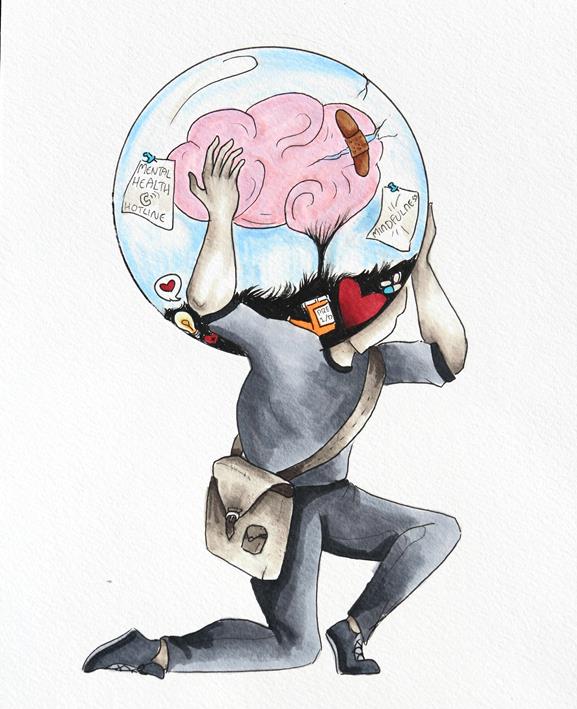Oct. 2–8 is mental illness awareness week (MIAW), an annual public education campaign designed to “help open the eyes of Canadians to the reality of mental illness” and start a “national conversation.” Part of that reality includes the fact that 1 in 5 Canadians will experience a mental illness in their lifetime. I also just so happen to be one of those Canadians, and I have some thoughts as my timeline fills slowly with #MIAW content.
First, I’d like to make a distinction. As headline after headline has warned about the declining mental health of Canadians throughout the pandemic, there’s been a lot of buzz about “mental health support” and the growing demand for it. This makes sense. There is a desperate need for better resources to help folks manage their mental health, and I think it’s great that people are thinking of mental health as being just as important as physical health.
However, I have noticed that the line between “poor mental health” and “mental illness” has been getting blurrier with each passing year, and I’d like to offer some perspective, through the means of clumsy, over-simplified analogy.
Let’s say lately, I struggle to catch my breath sometimes when I go for walks. For many reasons — some beyond my control and some well within it — I am not in very good shape. So lets say I then start to make use of resources — online workout classes, fitness logs on my phone, and even an accountability buddy or two who help me get up and get moving when I’ve been stuck inside for too long — to try and work around some of the challenges that I am facing and to improve my fitness. It takes a while, but eventually I’m power-walking up the Abby grind like it’s no big deal.
Now, let’s say I have a friend that goes on walks with me, that is also in good health. She gets enough sleep, works out, drinks enough water, and never has a bag of white cheddar popcorn instead of a real dinner. But still, despite her fitness, the friend is still really short of breath sometimes. It turns out, my friend has asthma — and while staying fit helps her deal with her symptoms, it is not enough on its own. Using her inhaler, regular check ups, and visits to a specialist every once in a while are necessary to manage her symptoms. This is getting kind of ham-fisted, but you get my point, right? The asthma is an analogy for mental illness? The friend is actually me? Well, except the thing about the popcorn.
Everyone has health. Everyone has mental health, too. It goes up and down and we go through periods where we need to take care of ourselves, or even seek some treatment to help us work through a rough patch. There is a big difference between mental health and chronic mental illness. While self-assessments, self-guided therapy apps, and government funded mental wellness initiatives have a very important role, if you or someone that you love has been diagnosed with a mental illness and needs support, then you understand how these things can start to feel like little more than a crutch for a failing healthcare system. For starters, there’s the issue of access. In the Fraser Health authority, there are Mental Health and Substance Use Centres. In my experience, these centres can provide referrals to assessment clinics, and access to a limited number of counseling sessions for short-term treatment. Anyone who has tried to make use of these services before can tell you that waitlists can stretch for months or even years for what often ends up being inadequate care.
Where the system comes up short, government sponsored initiatives and community based services are trying to make up the difference, but it’s just not enough. Not to mention the burden that co-ordinating this patchwork of resources puts on folks who are sick and already feeling isolated and overwhelmed. There has got to be something for those whose needs land somewhere between “three 50-minute zoom calls with a wellness coach” and a crisis line.
As someone who has spent the better part of my adulthood struggling to get the right cocktail of support through inadequate work insurance packages, university services, community-based programs and self-help pamphlets… I am tired. Part of me feels guilty complaining, because I know that in many ways, I am lucky to have the options I do, and to live in a time when I can talk about mental illness in public without facing social repercussions. Destigmatizing things is great, but… affordable and accessible health care would be a lot cooler. Until then, I’ll just keep practicing my abdominal breathing techniques and hoping for the best.
The Managing Editor is responsible for providing support to the Executive Editor in respect to editorial workflow and administration, and an educational resource for sectional editors and volunteers. The Managing Editor is also responsible for internal editorial and volunteer relations.



